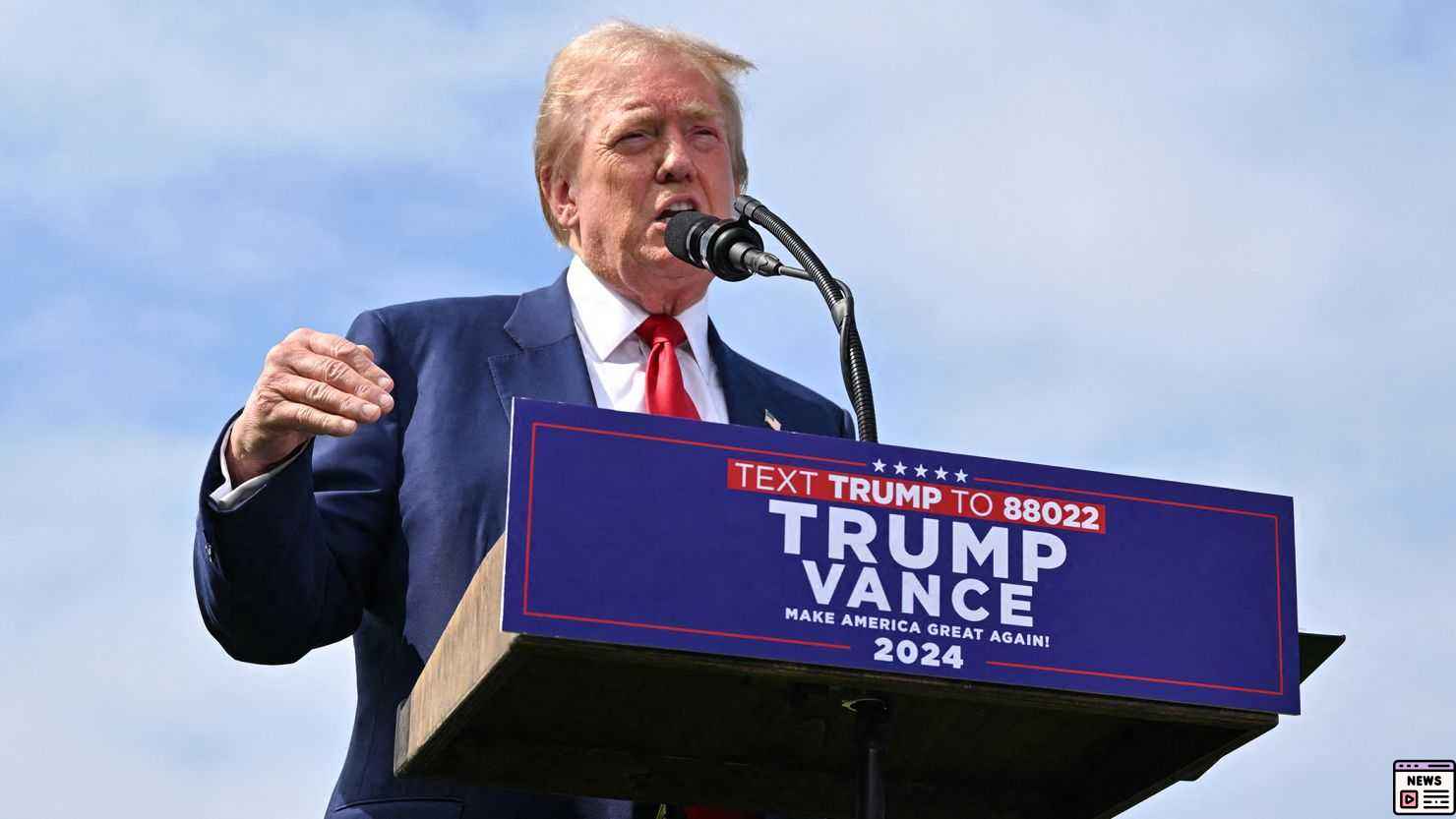Updated on: October 11, 2024 6:42 am GMT
In a week marked by controversy and politically charged statements, former President Donald Trump diverted attention away from his intended campaign focus on immigration and border security. Instead, he found himself at the center of a heated debate over misleading claims regarding migrants in Springfield, Ohio, where he falsely asserted that Haitian migrants were resorting to eating pets. These statements overshadowed his criticisms of Vice President Kamala Harris, who has been labeled by some Republicans as the “border czar,” responsible for an immigration crisis that they argue is affecting communities across the nation.
Trump’s Controversial Claims
During a news conference in California, Trump made headlines by claiming that Springfield, Ohio, has become a focal point for immigration issues, promising what he termed “the largest deportation in the history of our country.” He cited Springfield as a center of concern, alleging that residents were terrified due to the presence of “nests of bad people” infiltrating the community. Trump characterized the situation as an invasion, invoking fear among supporters and detractors alike.
The city of Springfield is home to a significant immigrant population, with city officials noting that approximately 12,000 to 15,000 immigrants reside in Clark County. Many of these individuals are Haitian immigrants currently living legally in the U.S. under a special parole program, designed to allow families to reunite. Despite this, Trump’s statements have ignited anxiety and unrest within the community.
Community Response
The rapid spread of Trump’s claims had immediate repercussions. The Springfield City School District was prompted to evacuate two elementary schools following reports of a bomb threat, highlighting the heightened tensions in the area. Springfield’s Mayor Rob Rue urged national political figures, indirectly referencing Trump and his running mate JD Vance, to be mindful of the potential consequences of their words, stating, “We need help, not hate.”
In response, President Joe Biden condemned Trump’s remarks, labeling them as baseless and harmful. “It’s simply wrong. And there’s no place in America for that,” Biden articulated during a recent event, further distancing his administration from Trump’s immigration rhetoric.
Political Implications
Trump’s approach reflects a broader strategy within the Republican Party, where immigration remains a pivotal issue. The party believes that it can leverage concerns about border security to critique Harris and the Democratic administration’s policies. Harris has been at the forefront of these discussions since being appointed by President Biden to address root causes of migration from Central America.
Trump’s claims regarding migrants and pets were met with skepticism, even among some Republican allies. JD Vance acknowledged that rumors surrounding the alleged incidents might not be credible. Yet, he maintained that the discussion was necessary, insisting that “we should talk about it every single day.” The emphasis on addressing immigration concerns, regardless of the context of Trump’s statements, has become a rallying point for the GOP.
Allies and Controversies
Another layer of Trump’s week involved his association with Laura Loomer, a controversial figure known for her far-right views and conspiracy theories. Trump’s support for Loomer has raised eyebrows and questions regarding the direction of his campaign. Critics within the Democratic Party have called attention to his associations, urging voters to consider the implications of aligning with individuals who espouse extremist positions.
Despite the turbulence surrounding his campaign, Trump and Harris continue to push forward. Recent polling has indicated that a majority of debate viewers found Harris to be the more compelling candidate against Trump. As both candidates travel to key battleground states, the stakes continue to rise in the lead-up to the 2024 presidential election.
Focus on Pennsylvania
In the midst of this controversy, Harris has been actively campaigning in Pennsylvania, a crucial state that holds significant electoral votes. On her recent visit to Cambria and Luzerne counties—areas that Trump had previously won—Harris emphasized the need to engage directly with voters across the political spectrum. “Ultimately, I feel very strongly that we have to earn every vote,” Harris stated, reiterating her commitment to outreach efforts that resonate with local communities.
Pennsylvania has seen an influx of campaign spending, with more than $175 million already allocated for advertisements from both parties. As early voting approaches, Harris is focused on maximizing turnout in Democratic districts while minimizing Trump’s margins in traditionally Republican regions.
Looking Ahead
As both campaigns gear up for the coming election, the narrative surrounding immigration and border security is expected to dominate discussions. Trump’s incendiary remarks have drawn sharp criticism and fueled fears, yet they have also opened the door for deeper conversations about policy and community well-being. The implications of these strategies will be closely watched as voters prepare to cast their ballots in 2024.
The political scene is always changing, and we still don’t know how these issues will affect what voters think. But one thing is clear: the talk about immigration will be very important for how both Trump and Harris run their campaigns as election day gets closer.
